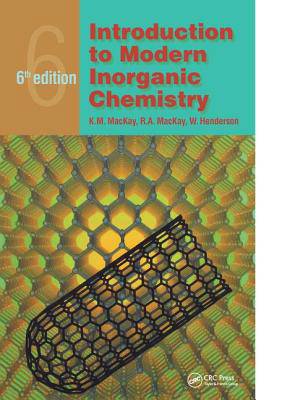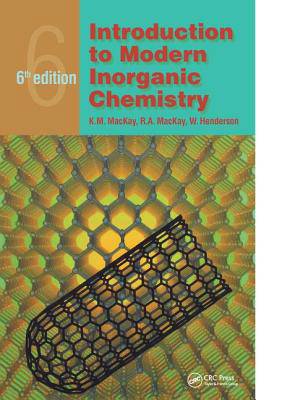
En raison de l'affluence sans précédent, votre commande online avec livraison à domicile peut actuellement prendre un peu plus de temps que prévu. Besoin de quelque chose d'urgence ? Choisissez de retirer dans un magasin avec du stock. Nos magasins vous accueillent à bras ouverts !
- Retrait gratuit dans votre magasin Club
- 7.000.000 titres dans notre catalogue
- Payer en toute sécurité
- Toujours un magasin près de chez vous
En raison de l'affluence sans précédent, votre commande online avec livraison à domicile peut actuellement prendre un peu plus de temps que prévu. Besoin de quelque chose d'urgence ? Choisissez de retirer dans un magasin avec du stock. Nos magasins vous accueillent à bras ouverts !
- Retrait gratuit dans votre magasin Club
- 7.000.0000 titres dans notre catalogue
- Payer en toute sécurité
- Toujours un magasin près de chez vous
Introduction to Modern Inorganic Chemistry, 6th Edition
R a MacKay, W Henderson
Livre relié | Anglais
251,95 €
+ 503 points
Format
Description
This popular and comprehensive textbook provides all the basic information on inorganic chemistry that undergraduates need to know. For this sixth edition, the contents have undergone a complete revision to reflect progress in areas of research, new and modified techniques and their applications, and use of software packages.
Introduction to Modern Inorganic Chemistry begins by explaining the electronic structure and properties of atoms, then describes the principles of bonding in diatomic and polyatomic covalent molecules, the solid state, and solution chemistry. Further on in the book, the general properties of the periodic table are studied along with specific elements and groups such as hydrogen, the 's' elements, the lanthanides, the actinides, the transition metals, and the "p" block. Simple and advanced examples are mixed throughout to increase the depth of students' understanding. This edition has a completely new layout including revised artwork, case study boxes, technical notes, and examples. All of the problems have been revised and extended and include notes to assist with approaches and solutions. It is an excellent tool to help students see how inorganic chemistry applies to medicine, the environment, and biological topics.Spécifications
Parties prenantes
- Auteur(s) :
- Editeur:
Contenu
- Nombre de pages :
- 628
- Langue:
- Anglais
Caractéristiques
- EAN:
- 9781138435476
- Date de parution :
- 29-06-17
- Format:
- Livre relié
- Format numérique:
- Genaaid
- Dimensions :
- 210 mm x 279 mm
- Poids :
- 452 g







